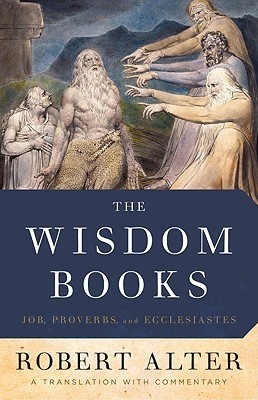What do you think?
Rate this book


416 pages, Hardcover
First published October 11, 2010
If only my hope were fulfilled,
and my hope God might grant.
If only God would deign to crush me,
loose his hand and tear me apart.
(6:8-9)
I returned to see under the sun that not to the swift is the race and not to the mighty, the battle, nor to the wise, bread, not to the discerning, wealth, nor to those who know, favor, for a time of mishap will befall them all. Nor does man know his time, like fish caught in an evil net and like birds held in a trap, like them the sons of man are ensnared by an evil time when it suddenly falls upon them.
(9:11-12)
Then the LORD answered Job out of the whirlwind, and said,
Who is this that darkeneth counsel by words without knowledge?
Gird up now thy loins like a man; for I will demand of thee, and answer thou me.
Where wast thou when I laid the foundations of the earth? declare, if thou hast understanding.
(KJV)
And the Lord answer Job from the whirlwind and He said:
Who is this who darkens counsel
in words without knowledge?
Gird your loins like a man,
that I may ask you, and you can inform Me.
Where were you when I founded earth?
Tell, if you know understanding.
(Alter)
Silver has a crucible and gold a kiln,
and the LORD tries hearts. --Proverbs 17:3